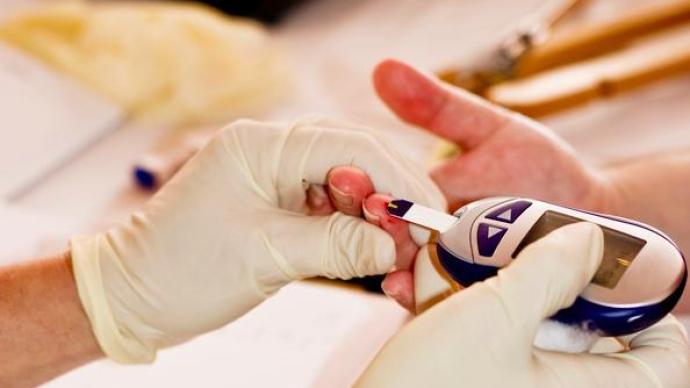
The reporter learned from Zhejiang University on the 19th that the team of Academician Huang Hefeng of the Obstetrics and Gynecology Hospital Affiliated to Zhejiang University School of Medicine cooperated with the team of Academician Xu Guoliang of the Chinese Academy of Sciences to reveal the oocyte origin of diabetes for the first time, that is, the adverse maternal environment can affect offspring sugar through oocytes. Metabolic function, elucidating the specific regulatory mechanism of oocyte TET3 deficiency mediating the occurrence of chronic diseases in offspring. The research results were recently published in the journal Nature.
About two-fifths of women with diabetes worldwide are of childbearing age, and research into source prevention and control can help reduce birth defects. In this study, the researchers established a female mouse model of diabetes, took out the affected oocytes and performed in vitro fertilization and embryo transfer, and were bred and nurtured by healthy female mice. The results showed that the offspring mice had impaired glucose tolerance, indicating that the oocytes were affected by the adverse environment of hyperglycemia, which increased the susceptibility of the offspring to adult chronic diseases.
The joint team has confirmed through transcriptome sequencing and other studies that due to the high glucose environment in diabetic female mice, the dose of dioxygenase TET3 protein, which has the function of reprogramming DNA methylation profiles in oocytes, is insufficient. Inadequate potential to drive reprogramming into the male pronucleus results in insufficient demethylation or hypermethylation, affecting offspring health.
Specifically, in zygotes formed from eggs of hyperglycemic mice fertilized with normal sperm, TET3-deficiency-mediated androgenetic hypomethylation in the male prokaryote affected the original methylation reprogramming pattern of the sperm DNA set, including glucose The promoters of a series of insulin secretion genes such as the kinase Gck are hypermethylated. Hypermethylation and low expression of genes such as Gck in offspring islets lead to insufficient insulin secretion, decreased blood sugar lowering ability, and increased susceptibility to diabetes with age.
"The results of this study provide a new perspective and strategy for us to prevent and control chronic diseases from the developmental source and the stage of gametogenesis, reduce birth defects, and improve the health of our country's population." Huang Hefeng said.
(Original title, "My Scientist Reveals the Intergenerational Genetic Mechanism of Diabetes")
About two-fifths of women with diabetes worldwide are of childbearing age, and research into source prevention and control can help reduce birth defects. In this study, the researchers established a female mouse model of diabetes, took out the affected oocytes and performed in vitro fertilization and embryo transfer, and were bred and nurtured by healthy female mice. The results showed that the offspring mice had impaired glucose tolerance, indicating that the oocytes were affected by the adverse environment of hyperglycemia, which increased the susceptibility of the offspring to adult chronic diseases.
The joint team has confirmed through transcriptome sequencing and other studies that due to the high glucose environment in diabetic female mice, the dose of dioxygenase TET3 protein, which has the function of reprogramming DNA methylation profiles in oocytes, is insufficient. Inadequate potential to drive reprogramming into the male pronucleus results in insufficient demethylation or hypermethylation, affecting offspring health.
Specifically, in zygotes formed from eggs of hyperglycemic mice fertilized with normal sperm, TET3-deficiency-mediated androgenetic hypomethylation in the male prokaryote affected the original methylation reprogramming pattern of the sperm DNA set, including glucose The promoters of a series of insulin secretion genes such as the kinase Gck are hypermethylated. Hypermethylation and low expression of genes such as Gck in offspring islets lead to insufficient insulin secretion, decreased blood sugar lowering ability, and increased susceptibility to diabetes with age.
"The results of this study provide a new perspective and strategy for us to prevent and control chronic diseases from the developmental source and the stage of gametogenesis, reduce birth defects, and improve the health of our country's population." Huang Hefeng said.
(Original title, "My Scientist Reveals the Intergenerational Genetic Mechanism of Diabetes")
Related Posts
0 Comments
Write A Comments